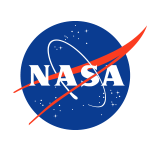Small Business Innovation Research/Small Business Tech Transfer
Low-Cost, Scalable, Hybrid Launch Propulsion Technology
Project Description

Physical Sciences Inc. (PSI), in collaboration Purdue University, proposes to develop a novel launch propulsion technology for rapid insertion of nano/micro satellites (~ 5-50 kg scale) into low earth orbit, with the potential to lower the current state-of-the-art launch stage cost by a factor of two. The technology employs a propulsion scheme comprising a storable liquid oxidizer and a unique solid fuel with excellent mechanical and thermochemical properties. The propulsion scheme was initially developed by PSI under DARPA programs for applications to in-space thrusters integrated in a consumable-structure spacecraft. The proposed application of this scheme to launch vehicle stage technology will result in low-cost, mass-efficient launch systems and will reduce the technical development risk for NASA. The fuel used is commercially available as an inexpensive engineering material. The oxidizer is commercially available as a low-cost, industrial chemical. Both have high density, are green (halogen and nitrogen free), and their chemical reaction has a high specific impulse. The oxidizer storage, handling, transportation, and loading operations are simpler and safer compared to cryogenic or toxic propellants. These attributes of the fuel and oxidizer enable our proposed concept of a low-cost launch vehicle stage. The specific objective of Phase I is to develop and analyze low-cost launch stage and thruster design concepts, and to develop and build a scaled prototype thruster hardware that will be used in both Phases I and II to characterize thruster design and to obtain performance data for use in the launch stage and propulsion system design/analysis studies. At the end of Phase I, we will have demonstrated the operation of the subscale thruster system and measured its performance. A plan for Phase II work, involving approaches to subscale ground testing or sub-orbital flight testing, will also be developed.
More »
Anticipated Benefits
The NASA application for the proposed launch vehicle stage technology is for insertion of nano/micro satellites into LEO over a range of inclinations. Initial applications are likely to be upper stages of launch vehicles. However, the technology can also be applied to other stages and to in-space propulsion, where high thrust at moderate impulse is required. The superior thermomechanical properties of our fuel are attractive for lighter propulsion systems as structural containment requirements are lowered and additional liner/insulation materials are unnecessary.
The non-NASA applications for the proposed launch vehicle stage technology include Air Force, Navy, and National Reconnaissance Organization missions to insert nano satellites into LEO over a range of inclinations and to in-space propulsion, where high thrust at moderate impulse is required. The commercial sector and educational institutions would also benefit from a substantially lower cost access to low earth orbit. The superior thermomechanical properties of the fuel will produce lighter propulsion systems for all applications. More »
The non-NASA applications for the proposed launch vehicle stage technology include Air Force, Navy, and National Reconnaissance Organization missions to insert nano satellites into LEO over a range of inclinations and to in-space propulsion, where high thrust at moderate impulse is required. The commercial sector and educational institutions would also benefit from a substantially lower cost access to low earth orbit. The superior thermomechanical properties of the fuel will produce lighter propulsion systems for all applications. More »
Project Library
Primary U.S. Work Locations and Key Partners
| Organizations Performing Work | Role | Type | Location |
|---|---|---|---|
| Physical Sciences, Inc. | Lead Organization | Industry | Andover, Massachusetts |
 Armstrong Flight Research Center
(AFRC)
Armstrong Flight Research Center
(AFRC)
|
Supporting Organization | NASA Center | Edwards, California |
| Purdue University | Supporting Organization | Academia | West Lafayette, Indiana |
Primary U.S. Work Locations
-
California
-
Indiana
-
Massachusetts

Suggest an Edit
Recommend changes and additions to this project record.

